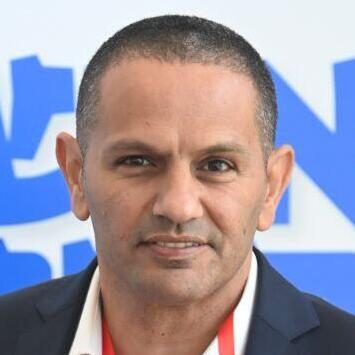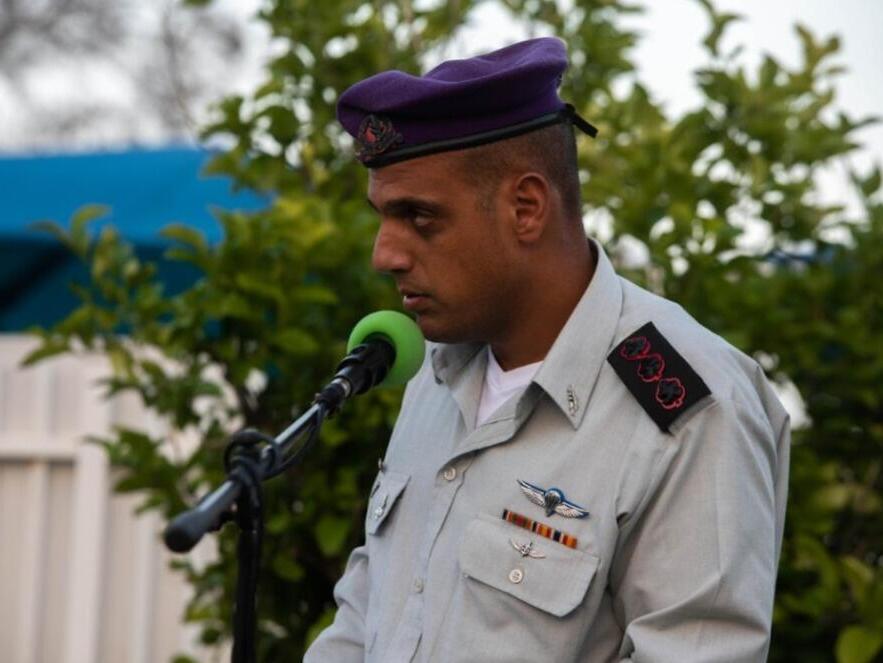Getting your Trinity Audio player ready...
The commander of an IDF brigade responsible for defending parts of the Gaza border resigned Tuesday, citing personal failure during the October 7 Hamas attack that left hundreds of civilians and soldiers dead.
Col. Haim Cohen, commander of the Northern Brigade in the IDF’s Southern Command, submitted his resignation to Maj. Gen. Yaron Finkelman, the head of Southern Command. In a letter made public by the military, Cohen acknowledged his brigade's failure to protect civilians during the surprise assault.
“On October 7, the brigade under my command failed in its mission to protect the residents of the Gaza envelope when a surprise war broke out,” Cohen wrote. “In terms of results, I failed!!!”
Cohen’s area of responsibility included the site of the Nova music festival and the kibbutzim Be’eri and Nahal Oz, among the hardest-hit locations during the attack. Rather than leading from the field, Cohen chose to manage operations from the division’s command center. Internal IDF investigations later linked him to significant lapses in judgment and decision-making, including the mismanagement of security at the Nahal Oz military post.
A review found that Cohen provided an inaccurate picture of the unfolding situation in Nahal Oz, including misrepresentations of elite units’ locations. A whiteboard in his office erroneously indicated that special forces such as Sayeret Matkal, the Yamam counterterror unit, and the Shayetet 13 naval commando unit were operating in the area.
Military investigators criticized Cohen’s decision to remain at the command post, saying he should have deployed to a forward position. “The brigade commander should have positioned himself, as doctrine dictates in a surprise assault, in a location where he could influence the brigade-level battle from the field,” the review said.
According to the IDF, Cohen was expected to establish a command center near Mefalsim but should have relocated to the Sa’ad Junction, a central crossroads in the northern Gaza border region, from which arriving reinforcements could be directed to multiple active combat zones.
<< Get the Ynetnews app on your smartphone: Google Play: https://bit.ly/4eJ37pE | Apple App Store: https://bit.ly/3ZL7iNv >>
While Cohen accepted responsibility for the failures, he also emphasized the overwhelming nature of the attack, which Israel has described as the largest assault on its territory in decades. “The surprise was total,” he wrote. “We fought alone.”
Cohen announced in December that he planned to step down. However, his departure was delayed due to a government freeze on military appointments. His successor, Lt. Col. Omri Mashiach, was named earlier this month and will be promoted to colonel upon assuming command.
In his resignation letter, Cohen described the horrors he witnessed on October 7. “I will never forget the killing fields of innocent civilians lying in their blood, the inferno and the heroism of the few troops under my command — alert squads and brave civilians, children of light facing a barbaric terrorist army,” he wrote. “The smell of death and the screams over the radio will never leave my memory.”
He praised the troops’ response in the hours and days that followed, writing: “Despite unimaginable losses both in the rear and on the frontlines, we did not stop until we cleared the area of the last terrorists and went on the offensive. With a broken heart and strong spirit.”
Cohen also addressed bereaved families, calling the fallen “heroes and saints.”
He said he would now focus on personal and family recovery and expressed readiness to continue contributing to the country’s security as a civilian. He ended the letter with a call to bring home hostages still held in Gaza and recover the bodies of the dead.
“The mission is not over,” he wrote. “We must bring back our brothers suffering in captivity and give the fallen a proper burial — yesterday if possible.”





